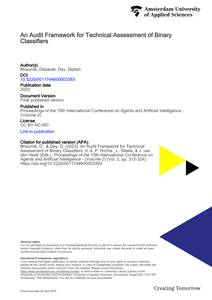The security of online assessments is a major concern due to widespread cheating. One common form of cheating is impersonation, where students invite unauthorized persons to take assessments on their behalf. Several techniques exist to handle impersonation. Some researchers recommend use of integrity policy, but communicating the policy effectively to the students is a challenge. Others propose authentication methods like, password and fingerprint; they offer initial authentication but are vulnerable thereafter. Face recognition offers post-login authentication but necessitates additional hardware. Keystroke Dynamics (KD) has been used to provide post-login authentication without any additional hardware, but its use is limited to subjective assessment. In this work, we address impersonation in assessments with Multiple Choice Questions (MCQ). Our approach combines two key strategies: reinforcement of integrity policy for prevention, and keystroke-based random authentication for detection of impersonation. To the best of our knowledge, it is the first attempt to use keystroke dynamics for post-login authentication in the context of MCQ. We improve an online quiz tool for the data collection suited to our needs and use feature engineering to address the challenge of high-dimensional keystroke datasets. Using machine learning classifiers, we identify the best-performing model for authenticating the students. The results indicate that the highest accuracy (83%) is achieved by the Isolation Forest classifier. Furthermore, to validate the results, the approach is applied to Carnegie Mellon University (CMU) benchmark dataset, thereby achieving an improved accuracy of 94%. Though we also used mouse dynamics for authentication, but its subpar performance leads us to not consider it for our approach.
DOCUMENT

Het doel van dit onderzoek is te onderzoeken onder welke omstandigheden en onder welke condities relatief moderne modelleringstechnieken zoals support vector machines, neural networks en random forests voordelen zouden kunnen hebben in medisch-wetenschappelijk onderzoek en in de medische praktijk in vergelijking met meer traditionele modelleringstechnieken, zoals lineaire regressie, logistische regressie en Cox regressie.
MULTIFILE

Multilevel models using logistic regression (MLogRM) and random forest models (RFM) are increasingly deployed in industry for the purpose of binary classification. The European Commission’s proposed Artificial Intelligence Act (AIA) necessitates, under certain conditions, that application of such models is fair, transparent, and ethical, which consequently implies technical assessment of these models. This paper proposes and demonstrates an audit framework for technical assessment of RFMs and MLogRMs by focussing on model-, discrimination-, and transparency & explainability-related aspects. To measure these aspects 20 KPIs are proposed, which are paired to a traffic light risk assessment method. An open-source dataset is used to train a RFM and a MLogRM model and these KPIs are computed and compared with the traffic lights. The performance of popular explainability methods such as kernel- and tree-SHAP are assessed. The framework is expected to assist regulatory bodies in performing conformity assessments of binary classifiers and also benefits providers and users deploying such AI-systems to comply with the AIA.
DOCUMENT
